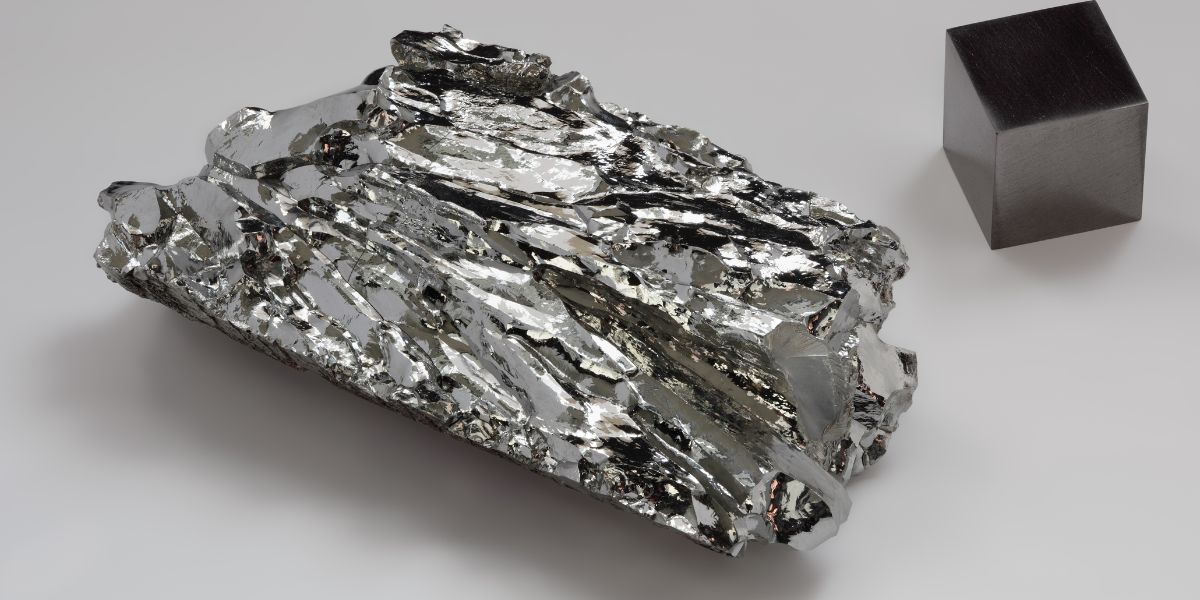Top Uses of Molybdenum (IV) Sulfide in Modern Industry
Molybdenum (IV) sulfide, commonly known as molybdenum disulfide (MoS₂), is a versatile compound with a wide range of industrial applications. Thanks to its unique chemical and physical properties—such as high thermal stability, excellent lubricating capabilities, and semiconducting behavior—MoS₂ has become a critical material in various industries.
In this article, we’ll explore the top uses of molybdenum (IV) sulfide in modern industry, explaining why it’s such a valuable material and how it contributes to technological advancements.
1. Solid Lubricant in Machinery and Automotive Industries
One of the most well-known uses of MoS₂ is as a dry lubricant. Unlike liquid lubricants (like oils and greases), molybdenum disulfide works effectively in high-pressure, high-temperature, and vacuum environments where traditional lubricants fail.
Why is MoS₂ a Great Lubricant?
- Layered structure: MoS₂ has a sandwich-like structure where sulfur atoms surround molybdenum atoms. These layers slide over each other easily, reducing friction.
- Works in extreme conditions: It remains stable at temperatures up to 350°C (662°F) and performs well in space applications where liquid lubricants would evaporate.
- Corrosion-resistant: Unlike some oils, MoS₂ doesn’t break down or attract moisture, making it ideal for marine and aerospace applications.
Common Applications:
- Engine components (pistons, bearings, gears)
- Aerospace machinery (satellite parts, rocket components)
- Industrial machinery (mining equipment, heavy-load bearings)
2. Additive in Engine Oils and Greases
While MoS₂ works great as a dry lubricant, it’s also widely used as an additive in oils and greases to enhance their performance. Adding even a small amount of molybdenum disulfide can significantly reduce wear and tear in engines and machinery.
Benefits of MoS₂ in Lubricants:
- Reduces friction between moving parts, improving efficiency.
- Extends engine life by preventing metal-to-metal contact.
- Works under heavy loads, making it ideal for trucks, construction equipment, and industrial motors.
Where is it Used?
- Automotive engine oils (especially for high-performance vehicles)
- Industrial gear oils (for heavy machinery)
- Greases (used in mining, steel production, and marine applications)
3. Semiconductor and Electronics Industry
Molybdenum disulfide is a 2D material, meaning it’s incredibly thin (just a few atoms thick) yet highly conductive. This makes it a promising alternative to silicon in next-generation electronics.
Why MoS₂ in Electronics?
- Semiconducting properties: Unlike graphene (which is a pure conductor), MoS₂ can act as a transistor, making it useful in microchips.
- Flexible and transparent: It can be used in flexible displays, wearable electronics, and thin-film transistors.
- Low power consumption: Devices made with MoS₂ could be more energy-efficient than traditional silicon-based electronics.
Applications in Electronics:
- Transistors and microchips (for smaller, faster electronics)
- Flexible screens (foldable smartphones, e-paper)
- Photodetectors and sensors (used in imaging and environmental monitoring)
4. Hydrogen Evolution Reaction (HER) for Clean Energy
As the world shifts toward green energy, hydrogen fuel has gained attention as a clean alternative to fossil fuels. MoS₂ plays a crucial role in hydrogen production through a process called the Hydrogen Evolution Reaction (HER).
How Does MoS₂ Help in Hydrogen Production?
- Acts as a catalyst: MoS₂ speeds up the splitting of water into hydrogen and oxygen, making the process more efficient.
- Cost-effective: Compared to platinum (a traditional HER catalyst), MoS₂ is much cheaper while still being effective.
- Stable under harsh conditions: It performs well in acidic or alkaline environments used in electrolysis.
Where is it Used?
- Water electrolyzers (for hydrogen fuel production)
- Fuel cells (to generate electricity from hydrogen)
5. Anti-Wear and Anti-Corrosion Coatings
MoS₂ is often used in protective coatings to prevent wear, friction, and corrosion in metal parts. These coatings are especially useful in harsh environments where machinery is exposed to extreme temperatures, moisture, or chemicals.
Advantages of MoS₂ Coatings:
- Reduces wear and tear on moving parts.
- Protects against rust and corrosion (important in marine and offshore applications).
- Enhances durability of tools and industrial equipment.
Common Applications:
- Cutting tools and drill bits (extends tool life)
- Aircraft components (protects against high-altitude conditions)
- Oil and gas pipelines (prevents corrosion in harsh environments)
6. Battery Technology and Energy Storage
With the growing demand for better batteries (for electric vehicles, smartphones, and renewable energy storage), researchers are exploring MoS₂ as a material for next-generation batteries.
Why MoS₂ in Batteries?
- High lithium storage capacity: MoS₂ can store more lithium ions than graphite (used in traditional lithium-ion batteries), potentially increasing battery life.
- Faster charging: Its layered structure allows quicker ion movement, leading to faster recharge times.
- Stable at high temperatures: Reduces the risk of overheating in batteries.
Potential Uses:
- Lithium-ion batteries (for EVs and electronics)
- Sodium-ion batteries (a cheaper alternative to lithium)
- Supercapacitors (for rapid energy storage and release)
7. Photovoltaic (Solar Cell) Applications
Solar energy is a key player in renewable energy, and MoS₂ is being studied as a material to improve solar cell efficiency.
How MoS₂ Enhances Solar Cells:
- Light absorption: MoS₂ can absorb a broad spectrum of light, including visible and infrared wavelengths.
- Thin and lightweight: Can be used in flexible solar panels for portable and wearable devices.
- Cost-effective: Cheaper than some traditional solar materials like silicon.
Future Applications:
- Thin-film solar cells (for lightweight and flexible panels)
- Tandem solar cells (combining MoS₂ with other materials for higher efficiency)
To read more blog: Oilfield Chemicals Market 2031: Growth, Opportunities, and Demand
Conclusion: Why MoS₂ is a Game-Changer in Industry
Molybdenum (IV) sulfide (MoS₂) is a multifunctional material with applications ranging from lubricants and coatings to electronics and clean energy. Its unique properties—such as low friction, thermal stability, and semiconducting behavior—make it indispensable in modern technology.

